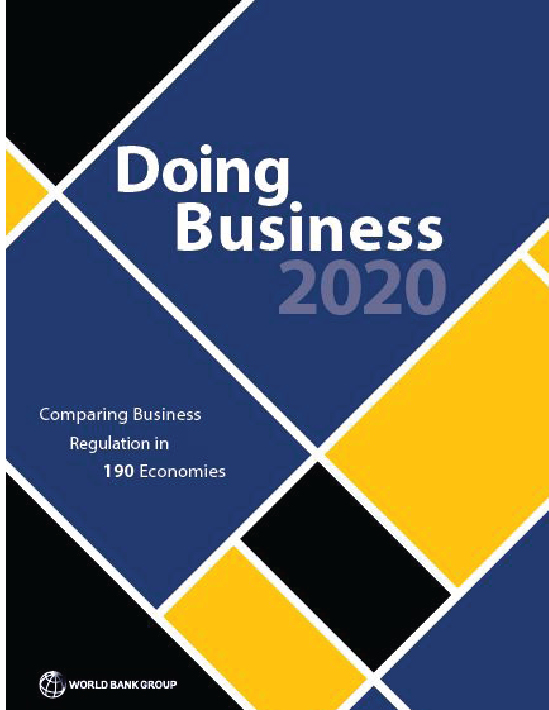ISLAMABAD, October 24, 2019 – The enactment of six regulatory reforms has landed Pakistan among the world’s top 10 business climate improvers, the World Bank Group’s Doing Business 2020 study says. Due to a concerted improvement in business regulation, Pakistan climbed 28 places and rose to a rank of 108 in the global ease of Doing Business rankings this year from 136 the previous year.
“This rise is significant and made possible by collective and coordinated actions of Federal Government and Provincial Governments of Sindh and Punjab over the past year,” said Illango Patchamuthu, World Bank Country Director for Pakistan. “The accelerated reform agenda has many noteworthy features to improve quality of regulations, reduce time and streamline processes. This momentum needs to be sustained in the coming years for Pakistan to continue to make progress.”

The reforms that helped the country improve its ranking are significant. The country has made starting a business easier by expanding the functionalities of the online one-stop-shop. This reduced the number of procedures required to set up a business from 10 to five and improved the economy’s score for starting a business. Additionally, in Lahore, the Labor Department registration fee was abolished.
Authorities made the approval process for obtaining a construction permit easier and faster in both Karachi and Lahore. In Karachi, the process was also made safer by ensuring that building quality inspections take place regularly. Pakistan also eased the process for paying taxes by introducing online payment modules for value added taxes and corporate income taxes. The government also lowered the corporate income tax rate for the 2018 fiscal year. This reform reduced the number of payments from 47 to 34 and the total number of hours required to comply with tax requirements per year from 294 to 283.
Pakistan also made it easier to get electricity and register property. Karachi and Lahore enforced service delivery time frames and launched an online portal for new applications. In addition, the country increased the transparency of electricity tariff changes. Karachi made property registration faster by making it easier to execute and register a deed at the Office of the Sub-Registrar. Lahore increased the transparency of the land administration system by publishing its fee schedule online. Lastly, in the area of trading across borders, Pakistan enhanced the integration of various agencies in the Web-Based One Customs (WEBOC) electronic system and ensured coordination of joint physical inspections at the port.
Pakistan continues to perform best on the protecting minority investors indicator, earning the maximum possible points on the extent of ownership and control index, which measures governance safeguards protecting shareholders from undue board control. Globally, Pakistan is in the top 30 economies on this measure.
Going forward, Pakistan has other opportunities for improvement in the areas measured by Doing Business. For example, on enforcing contracts, the country ranks 156th. It takes 1,071 days to resolve a commercial dispute in Pakistan, almost twice the average among OCED high-income economies.
The full study and its datasets are available at www.doingbusiness.org